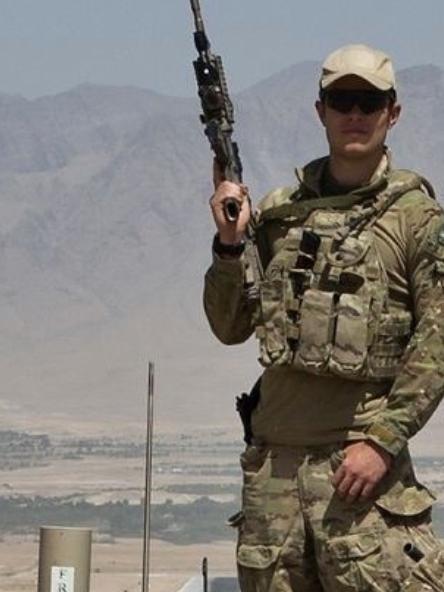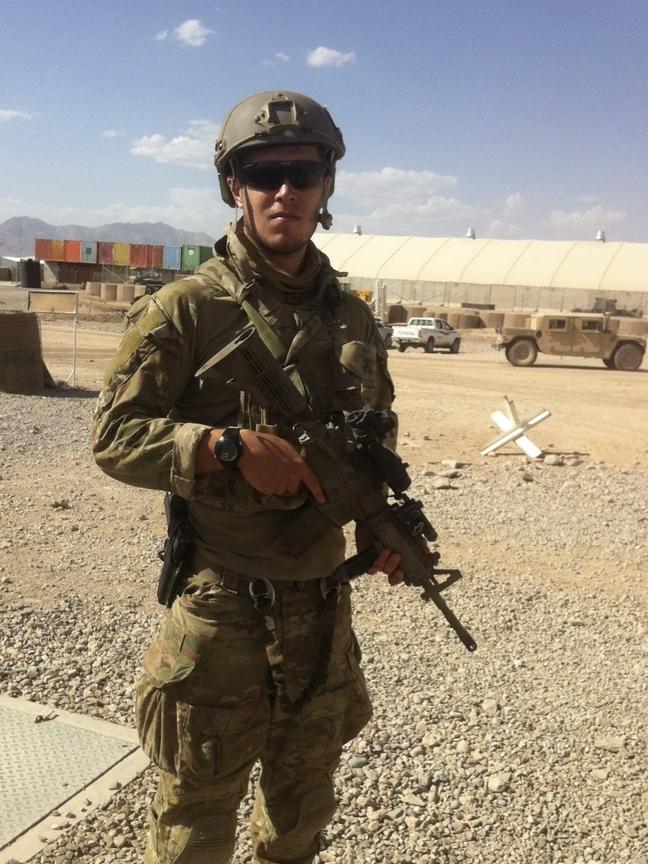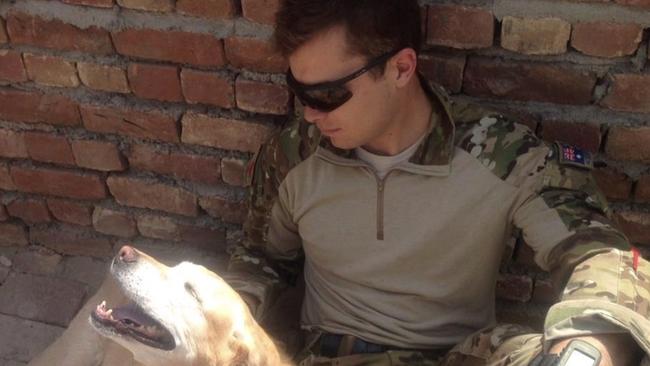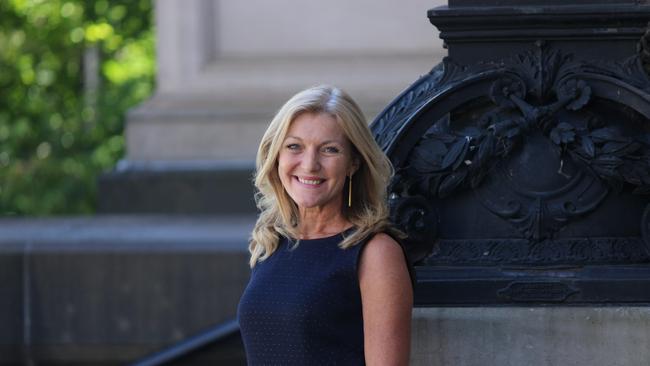Australian Army veteran urges government to rethink cannabis subsidies
An Australian Army veteran who claims medicinal cannabis has played a vital role in his battle against PTSD has made an emotional plea to the federal government to try and change their policy on the drug.
VIC News
Don't miss out on the headlines from VIC News. Followed categories will be added to My News.
An Australian Army veteran battling post-traumatic stress disorder has called for the federal government to subsidise medicinal cannabis, which he says has turned his condition around.
David Hill, who was on two tours of Afghanistan, in 2012 and 2015, said other drugs prescribed to manage his illness had worked like a “chemical lobotomy”.
His father, Max, a former police officer, said he had resorted to sourcing cannabis oil on the “green market” to help his son, and appealed to a federal government inquiry to consider legalising marijuana.
Max said the family had been forced early on to pay $770-$860 for CBD (cannabis) oil, which was financially unsustainable.
The Department of Veterans Affairs says no studies yet demonstrate the effectiveness of cannabis oil for PTSD.


David said other drugs such as benzodiazepine had been prescribed during a stay at the Veterans’ Psychiatry Unit in Heidelberg — known as Ward 17 — that put him into a “fog”.
“I just felt like a zombie, I couldn’t string sentences together and I would sleep all day,” he said.
Max said the “unbridled prescription and issuing of benzos” was dangerous and had terrible side effects for many young people.
But he praised aspects of the veterans’ support services such as Open Arms counselling, and the Path of the Horse equine therapy.

David, who had a force protection security role during his second tour of Afghanistan, said returned service men and women were all affected by what they had experienced.
“We are all sticking together in terms of the guys living locally,” he said.
“I get calls from veteran friends when they feel I haven’t heard from me in a while and I try to do the same — they have felt the same pain.”
Reason Party leader and state MP Fiona Patten has taken up the cause, saying the state government could step in if the federal government refused.

“It is reprehensible that we would send our veterans out onto the black market, that we would force them to break the law to stay alive,” she said.
“We provide them with the equipment they need when they are on the frontline and we must do the same when they return.”
A spokesperson for the Department of Veterans’ Affairs said treatment was funded where there is “a clear evidence base” and most studies showing benefits of medicinal cannabis were focused on chronic pain management.
“There is currently limited evidence supporting the use of medicinal cannabis as an effective treatment for mental health conditions, including for post-traumatic stress disorder (PTSD),” the spokesperson said.
The spokesperson said a 2017 study by the Phoenix Australia Centre for Postrtraumatic Mental Health, and a 2019 meta-analysis by the Lancet Psychiatry journal found insufficient evidence for the use of medicinal cannabis for treating PTSD.
“However, the research into medicinal cannabis as a treatment is rapidly evolving and DVA will continue to monitor the developing research and published evidence,” the spokesperson said.
For Australians who have served in the defence forces, a 24-hour support line is available on 1800 628 036. If you or someone you know is finding it hard to cope, you can also call Open Arms on 1800 011 046.
RELATED:
HOW AUSSIES COMMEMORATED A DIFFERENT ANZAC DAY
